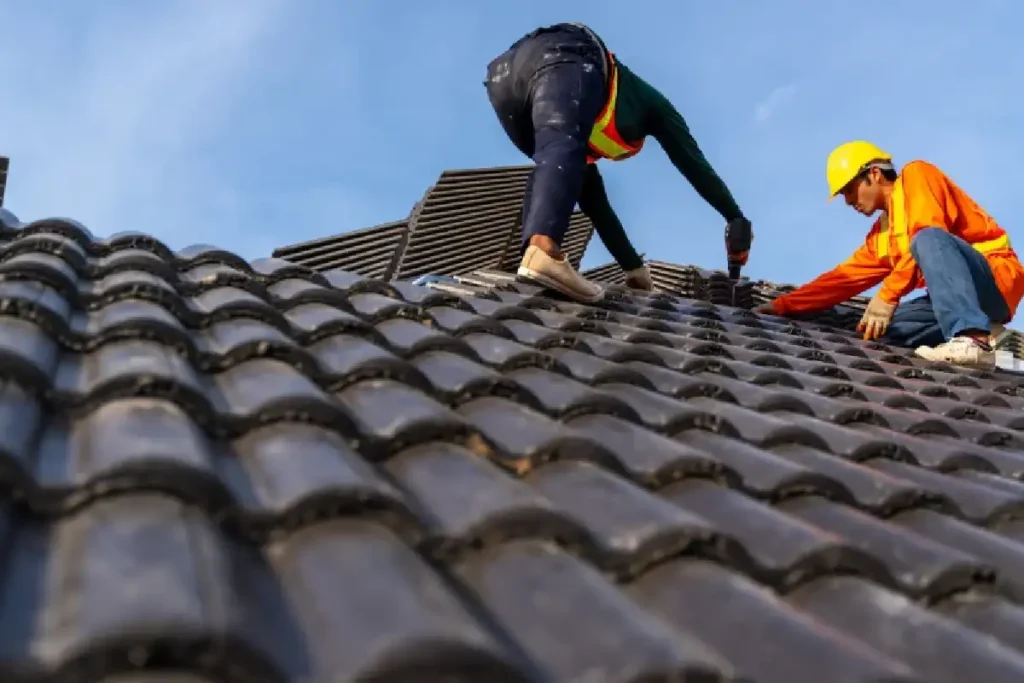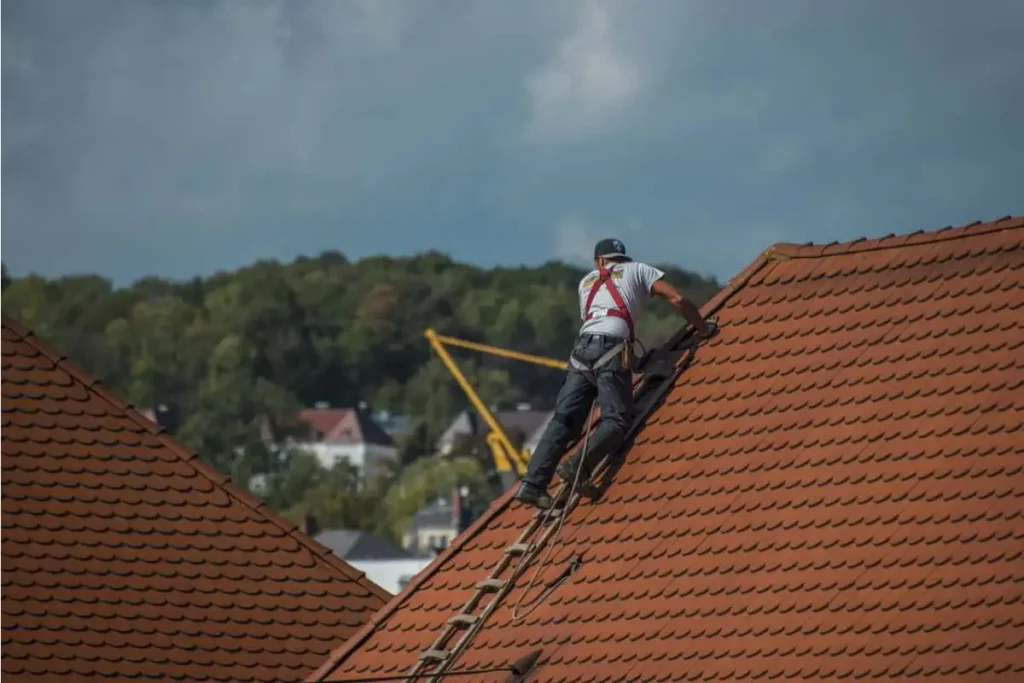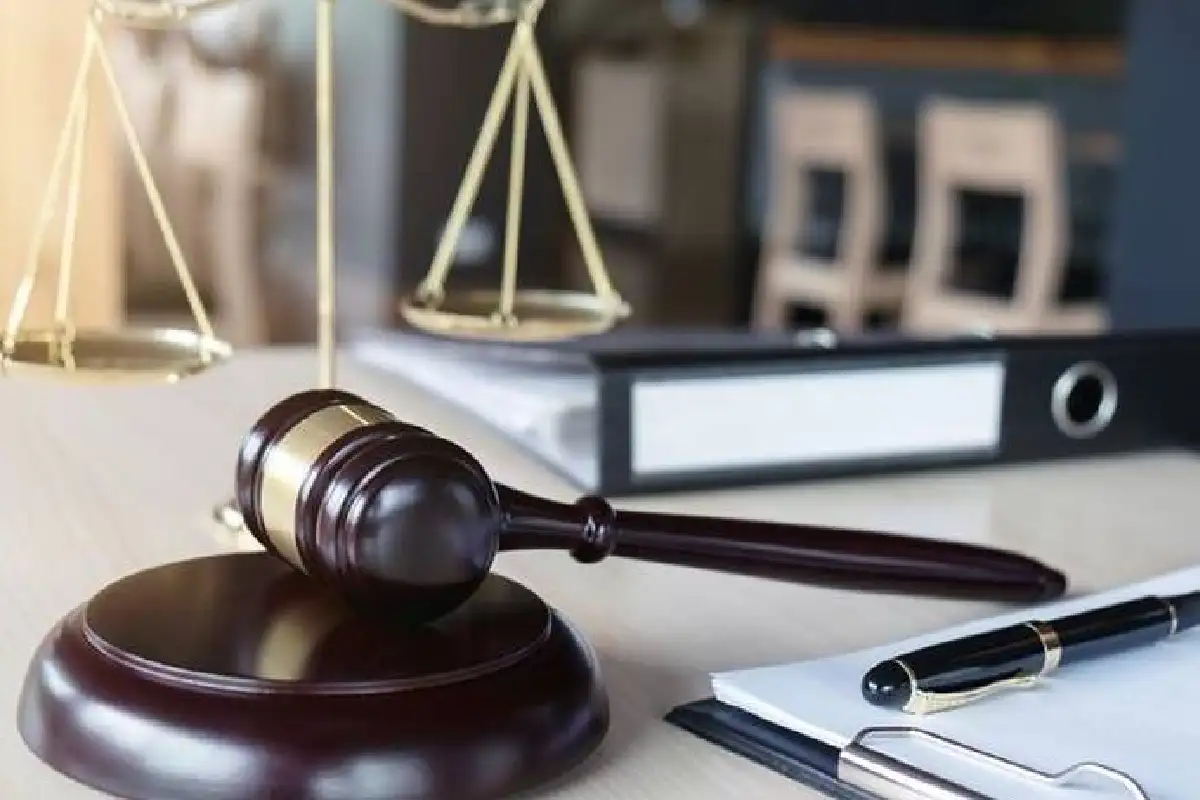A shocking $100,000 lawsuit rocked the roofing industry when Executive Roof Services sued homeowners Autumn Knepper and Adam Marsh. Their offense? Posting one-star Google reviews about their experience with the company.
The couple had shared their frustration about poor communication and a rude receptionist. Executive Roof Services (ERS) owner Michael Mecham claimed they couldn’t leave reviews since they weren’t direct customers. The situation took a dark turn when Mecham allegedly threatened Knepper. He told her he knew her address and would spend money to pursue legal action. The whole ordeal sparked public outrage, and Yelp had to suspend reviews on ERS’s listing after negative comments flooded in to support the couple.
This case explains the tricky balance between customer reviews, business reputation, and legal limits in today’s digital world. The couple’s GoFundMe campaign raised $9,000 for legal fees. Washington’s new Uniform Public Expression Protection Act now protects similar cases. This piece gets into the full story behind this controversial lawsuit and what it means for roofing companies and their customers.
The ERS Lawsuit: A Timeline of Events
The Executive Roof Services (ERS) lawsuit serves as a warning to homeowners and roofing professionals about the potential risks of online reviews. My years in the roofing industry made me pick up on this case because it affects how we do business.
How it all started with a leaky roof
Everything started innocently enough. Vancouver residents Autumn Knepper and Adam Marsh spotted a leak in their ceiling, which led their landlord to call Executive Roof Services for repairs. An ERS employee checked the attic and found several spots that needed work. The situation took an unexpected turn quickly.
Both tenants called ERS separately to ask about the repair schedule. They said the receptionist showed no interest in helping and refused to give any information. She told them they would have to get details from their landlord. The receptionist allegedly hung up on both of them after accusing them of being “verbally abusive”.
The one-star reviews that triggered legal action
The poor treatment frustrated Knepper and Marsh so much that they each posted one-star Google reviews about their bad experience with the company’s receptionist. They also filed a complaint with the Better Business Bureau.
Things got much worse after that. ERS owner Michael Mecham allegedly called Knepper directly with threats. He told her “he knew where she lived” and “he would gladly spend a hundred thousand dollars suing her”. Mecham demanded they take down the reviews before “more damages are done” to his business.
The couple soon received formal legal demands through the Jordan Ramis law firm. Their refusal to comply led ERS to file a lawsuit asking for $112,000 in damages plus $28,000 per week. The company claimed:
- Defamation
- Intentional interference with business expectancy
The company’s attorney, David Bowser, managed to keep saying this wasn’t about negative reviews. He claimed “they intentionally harmed ERS by posting one-star reviews for the purpose of getting a report they weren’t entitled to”.
Public reaction and the GoFundMe campaign
People reacted strongly and quickly. News of the lawsuit that spread led concerned citizens to donate nearly $9,000 to a GoFundMe campaign for the couple’s legal expenses. ERS faced heavy criticism and had to take their business offline as people flooded their online listings with negative comments.
Yelp stepped in and suspended reviews on the ERS listing because of all the negative feedback pouring in.

Understanding Customer Reviews in the Roofing Industry
Online reputation can make or break a roofing business. My decades in the roofing industry have given me a front-row seat to the Executive Roof Services lawsuit. This case shows how customer reviews can shape our businesses.
The impact of online reviews on roofing businesses
Numbers paint a clear picture about reviews in our industry. Studies reveal that 88% of customers look up online reviews before they hire local service providers. 94% of consumers choose businesses with positive feedback. 85% of potential clients trust these online reviews just as much as recommendations from friends and family.
Roofing contractors see this trust turn into real business results. Research shows 90% of buyers are quick to react and book appointments after reading positive reviews. 57% of consumers look only at businesses rated 4 stars or higher.
Money talks—positive reviews drive sales by helping potential clients make confident buying decisions. These reviews also boost search engine rankings, which puts your roofing website higher in local searches.
How to interpret negative feedback constructively
Negative reviews might sting, but they are a great way to get valuable lessons. This fact might surprise you: for every complaint you hear, 26 other dissatisfied customers stay quiet. Each criticism gives you a chance to spot areas needing improvement and shows your steadfast dedication to excellence.
Professional responses to criticism matter, especially since 88% of customers prefer businesses that respond to all reviews—good and bad. Your response plan should include:
- Tackling specific issues instead of using cookie-cutter responses
- Taking ownership as the business owner
- Taking detailed discussions offline
- Seeing each negative review as a chance to turn unhappy clients into supporters
The Executive Roof Services lawsuit reminds us that handling customer feedback properly isn’t just smart business—it helps avoid legal troubles that can get pricey. Experience shows that negative reviews often become stepping stones rather than roadblocks when you handle them professionally and show genuine care.
Legal Implications for Roofing Companies
The legal world for roofing companies has changed with Washington’s new anti-SLAPP legislation. My twenty years of running a roofing business have shown me how disputes over customer reviews can get pricey through legal battles.
Washington’s Uniform Public Expression Protection Act
Washington led the way in 2021 by passing the Uniform Public Expression Protection Act (UPEPA). This law shields free speech from baseless lawsuits. Roofing contractors should note that customer reviews now receive strong legal protection through a special process that quickly resolves cases about protected public expression.
Defendants can file a “special motion for accelerated relief” within 60 days after receiving a complaint. The motion automatically pauses all proceedings, including discovery. This change alters how roofing companies can handle negative online feedback.
What constitutes defamation vs. protected speech
Roofing companies need to understand a vital difference before taking legal action over negative reviews: the law protects opinions, but false factual statements might be defamation.
A roofing company must prove these points to win a defamation case:
- The statement was false and presented as fact
- Someone published it to third parties
- The business’s reputation suffered actual harm
- The reviewer was at fault for making the statement
Let’s look at an example. A review saying “I think this roofing company is terrible” counts as protected opinion. However, falsely claiming “this roofer violated health codes” could be defamation if proven untrue.
The dangers of SLAPP lawsuits for business owners
Strategic Lawsuits Against Public Participation (SLAPP) create major risks for roofing company owners. These lawsuits use financial muscle to drain defendants’ resources through litigation. The executive roof services lawsuit shows how these actions can backfire dramatically.
SLAPP suits often lead to serious problems. Business owners might have to pay the defendant’s legal fees. Their reputation can take a big hit. The executive roof services lawsuit demonstrated the Streisand Effect – trying to hide information only made it more public.

Executive Roof Services Lawsuit Outcome
The executive roof services lawsuit ended with a surprising twist after months of legal battles. My 15 years of roofing business experience made me watch this case with great interest because it could change how our industry handles customer reviews.
The December 2022 dismissal
Court records show the executive roof services lawsuit officially ended on December 6, 2022. Both parties agreed to stop the legal proceedings through an “Order of Dismissal Stipulated”. The court files labeled this as an “Uncontested Resolution”.
Executive Roof Services had filed their $112,000 lawsuit against Knepper and Marsh 17 months before this dismissal. The case caught national attention, and concerned citizens donated almost $9,000 to help the couple fight their legal battle.
My experience as a roofing business owner shows how this case highlights the dangers of taking aggressive legal action against customers who leave reviews. ERS learned this lesson the hard way and had to take their business offline because of public backlash.
Terms of the settlement
A private agreement between both parties led to the case’s end through a stipulated dismissal. Such resolutions usually mean both sides have reached a confidential agreement based on my industry experience.
Washington’s new Uniform Public Expression Protection Act came into effect right as the lawsuit ended. This law protects consumers from SLAPP filings. ERS would have faced tougher legal obstacles if they had filed their lawsuit later.
This case teaches roofing contractors a valuable lesson about suing over bad reviews. The damage to public image, legal fees, and business disruptions usually cost more than any benefits from such lawsuits.
The case helped teach consumers about their rights to share honest feedback online. This shows how transparency wins in today’s digital world.
Executive Roof Services Lawsuit Frequently Asked Questions
What is the Executive Roof Services lawsuit about?
The Executive Roof Services lawsuit centers around allegations of faulty roofing work and potential breach of contract. Customers claimed that the company provided substandard roofing services, leading to leaks and other property damage. There were also concerns raised about possible misrepresentation of services and warranty issues.
Who sued Executive Roof Services?
The lawsuit against Executive Roof Services was filed by multiple homeowners and property managers who had contracted the company for roofing projects. These plaintiffs alleged that the company failed to meet the promised quality standards. Some consumer protection groups also voiced concerns, although they were not formal plaintiffs in the case.
When did the Executive Roof Services lawsuit happen?
The legal actions against Executive Roof Services began around late 2023, following a growing number of complaints from clients. Investigations and court proceedings continued into 2024, as the case gained more attention. The timeline saw several hearings as both parties presented their arguments.
Did Executive Roof Services break any laws?
While the allegations pointed to potential violations, the court did not conclusively find Executive Roof Services guilty of breaking specific laws. However, they were scrutinized for not adhering to industry standards and possible breaches of consumer protection regulations. Regulatory bodies did investigate the claims thoroughly as part of the process.
What was the result of the Executive Roof Services lawsuit?
The lawsuit concluded with a settlement agreement between Executive Roof Services and the plaintiffs. Though the company did not admit to wrongdoing, they agreed to compensate affected customers. The resolution aimed to avoid prolonged litigation and offered some relief to those impacted by the roofing issues.
Did the lawsuit hurt Executive Roof Services’ business?
Yes, the lawsuit had a noticeable impact on Executive Roof Services’ reputation and operations. Negative publicity led to a decline in new customer inquiries and some existing contracts were reconsidered. The company had to invest heavily in rebuilding trust and improving service quality to recover from the backlash.
Was there a settlement in the Executive Roof Services case?
There was indeed a settlement reached in the Executive Roof Services case. The terms included financial compensation to affected homeowners and commitments to improve their workmanship. Settling out of court allowed the company to manage the situation more privately and begin the process of restoring its reputation.
How did Executive Roof Services defend themselves?
Executive Roof Services defended themselves by arguing that many of the issues were due to external factors, such as extreme weather conditions and improper maintenance by property owners. They also presented evidence of their compliance with industry practices and highlighted successful projects. The defense aimed to show that while mistakes may have occurred, they were not systemic.
How did media cover the Executive Roof Services lawsuit?
Media coverage of the Executive Roof Services lawsuit was fairly extensive, especially in local news outlets and industry publications. Reports focused on customer complaints, the legal proceedings, and the broader implications for the roofing industry. The case attracted attention due to the scale of the allegations and the growing conversation around contractor accountability.
What can others learn from the Executive Roof Services lawsuit?
Other businesses can learn the importance of maintaining high service standards and clear communication with clients. Proper documentation and prompt responses to customer concerns are crucial in preventing legal issues. This case also highlights the need for transparency and the value of addressing problems before they escalate to litigation.
